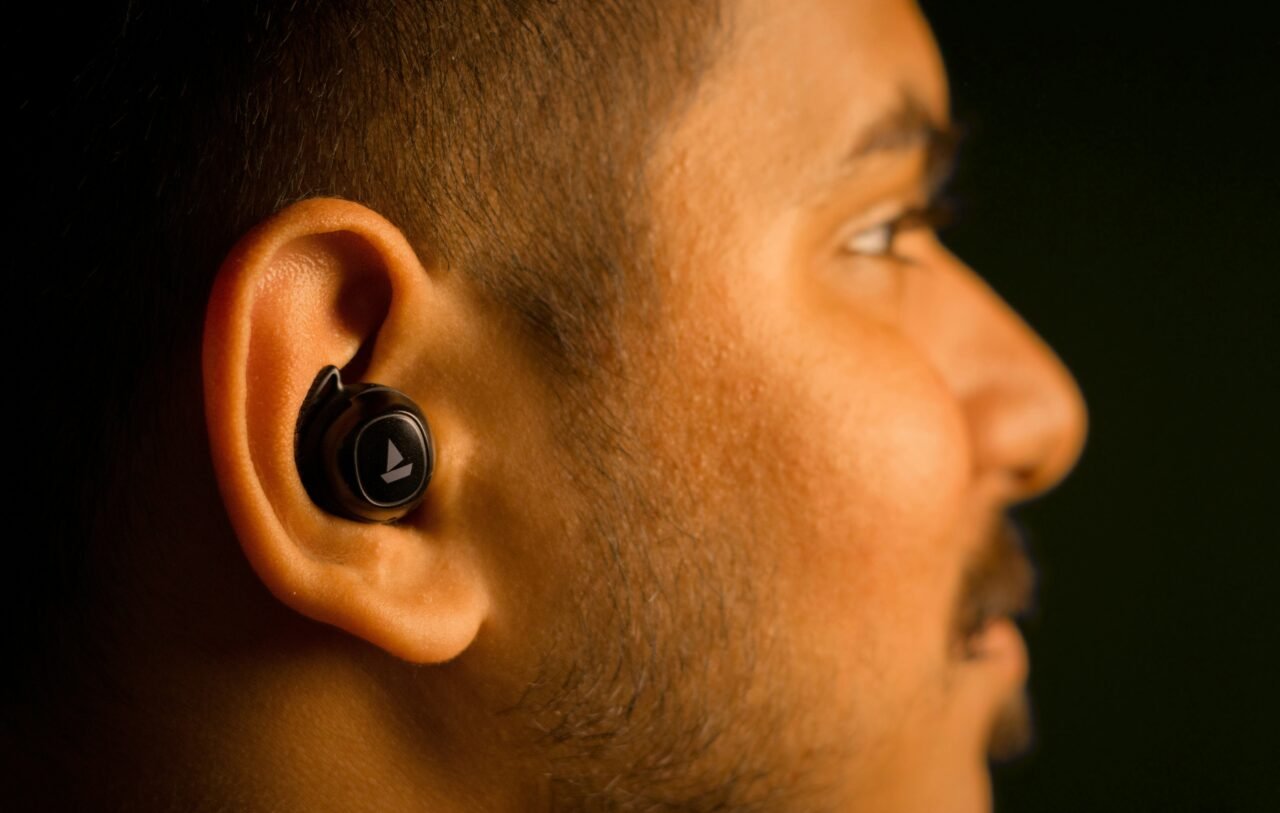by Kechi Oribabor, Guest Contributor
Introduction by Dr Esthefanea F. Santos
I’m pleased to welcome Kechi Oribabor, a local clinical audiologist, to our blog. In this post, she explains the cause of tinnitus, discussing the connection between the ear and the brain. Her insights complement my work in psychology, highlighting the importance of supporting both functional and emotional needs.
What is Tinnitus
This is the perception of sound usually audible to only oneself, with no external source of sound. It is commonly thought to exist due to a problem within or close to the auditory system.
The auditory system includes the ear and its pathway up to the brain. With an auditory focus, conditions or injuries affecting the auditory system can lead to tinnitus. We can assess the different levels of the auditory pathway to help ascertain where the problem could be.
Tinnitus can be triggered anywhere between the ear and the brain
It can start in the ear, it can start along the pathway up to the brain or in the brain.
It’s presentations
Tinnitus can be a classic ringing, buzzing, hissing, droning sound or even music! Sometimes having more than one presentation, pitch and/or loudness.
How long can it be present for?
Most of us experience tinnitus, but we experience and perceive tinnitus in different ways.
With spontaneous tinnitus, this is a natural phenomenon experienced by most people. It is transient and usually perceived as a high pitched tone followed by very brief muffled hearing. This lasts seconds with the tinnitus dissipating and hearing immediately going back to normal.
For others tinnitus can be chronic, where it is constantly perceived for more than 6 months. It can be distracting and even debilitating. For those bothered by their tinnitus, sleep, emotions and ability to concentrate can be affected. If negative emotions are specifically impactful, it can help to speak to someone about them and this in turn can help reduce the negative impact of tinnitus.
Mechanisms within the ear to brain
Mechanisms behind tinnitus generation are evolving as research provides more information. The current understanding suggests that tinnitus could result from altered nerve connections in the brain occurring due to a condition, deficit, disorder or imbalance within the auditory system.
Reduced input to the cortical neurons in the brain leads to their use (recruitment) by neighbouring regions of the brain. This “spread” or over representation leads to spontaneous firing of neurons.
The cochlea in the inner ear is thought to be involved in assigning the pitch to the tinnitus. Within the brain, the auditory cortex is involved in causing “spontaneous” firing of nerves. (i.e. firing with no direct stimulation) possibly as a result of reduced input from the ear.
For those with emotional reactions, the limbic system (the part of the brain tasked with dealing with emotions) and the autonomic nervous system (fight-flight system) are associated with tinnitus generation within the brain.
Causes/triggers of tinnitus
There are a number of causes or triggers for tinnitus. Whilst the points below are not exhaustive, some causes include:
Exposure to loud sounds
Noise induced loss from damage to the hair cells within the cochlear after exposure to very high levels of sound. Highlighting the importance of using hearing protection.
Sudden exposure to loud sounds
This can cause acoustic trauma, which is also damage to the hearing cells within the cochlea. Imagine being exposed to the sudden bang from a burst balloon or a loudspeaker suddenly switched on at high levels with yourself in close proximity.The initial shock aside, that exposure can affect one at different levels of the auditory pathway from the ear up to the brain.
Hearing loss
Degenerating or damaged hair cells within the cochlear in the inner ear sending less information upwards to the brain.
Reaction to medication
Certain medications can bring about tinnitus. Some medications can be damaging to the hair cells within the cochlear (ototoxic). The tinnitus may stop as soon as the medication is stopped, or last well after the medication has been stopped.
Stress
For example, If one has been through a traumatic event e.g physical injuries, emotional distress, mental stress. Stress manifesting in its various ways can lead on to tinnitus
Unknown/ yet to be understood reasons
It is not completely understood how stimulation of systems outside of the auditory pathway can cause tinnitus. Some people may report a light touch, voluntary tensing of muscles or eye movements can bring about their tinnitus.
How to get help for tinnitus
The first recommended step would be to see an audiologist. An audiological assessment can help distinguish between effects related to non-auditory pathways and effects related to the auditory pathways. Typically if there is an auditory dysfunction. The first step towards managing the tinnitus would be to address the dysfunction first. If there is no ascertained auditory system dysfunction, then further investigations can be arranged to look into areas that could have led to tinnitus.In relation to the auditory system, anything that causes a hearing loss could also produce tinnitus. In people with hearing losses – a very common auditory dysfunction. Managing hearing losses has been shown to manage the tinnitus as well in a range of 68%-80% of cases.
 About the Author
About the Author
Kechi Oribabor is a Clinical Audiologist and Founder of Sonant Hearing. An independent private audiology practice based in Medway, Kent.
She specialises in Tinnitus, Hearing and Auditory Processing Disorders.
For more information on all things hearing and audiology related you can check her blog here or contact Sonant Hearing Clinic for more information on private audiology services.
For more conversations like this, you can explore other articles in our blog section or reach out for resources tailored to your situation.







